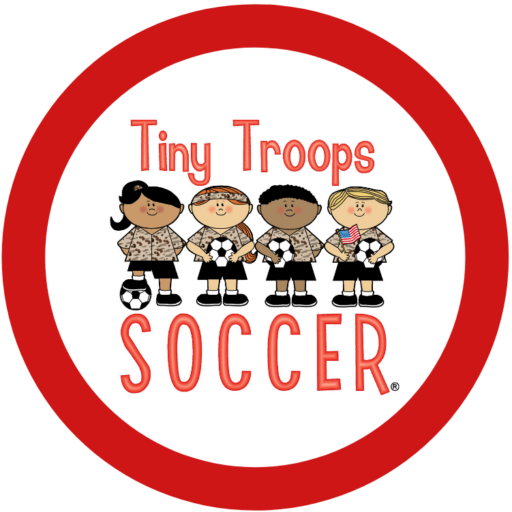Supporting Speech & Language Through Soccer: Insights from a Speech-Language Pathologist
Home » Supporting Speech & Language Through Soccer: Insights from a Speech-Language Pathologist

At Tiny Troops Soccer, we’re all about building confidence, friendships, and developing new skills through the power of play. But did you know that our soccer classes can also support your child’s speech and language development—especially if they’re currently receiving speech therapy or experiencing a language delay?
According to speech-language pathologist Makenzie Curtis, “Play is the most effective and most enjoyable way to learn anything, and that is verifiably true for developing speech and language skills.” Tiny Troops Soccer offers the perfect environment for this kind of learning, where children are immersed in language through fun, movement-based activities. They’re introduced to new vocabulary and concepts in an engaging setting that doesn’t feel like a classroom or office, but still teaches just as much.
During each class, Tiny Troopers practice early learning skills like listening, imitating, and following directions. These are all part of the foundation for strong communication skills. Tiny Troopers interact and engage with their peers to build social skills as well. This includes taking turns, cooperation, and conflict resolution. Curtis emphasizes that these skills are mostly learned from their coach. The coach’s role is to demonstrate each of these skills, and begin to help each child apply them to themselves.
For children who are delayed in speech or receiving therapy, the program’s structure and repetition can be even more beneficial. “Children especially benefit from repetition, visual cues, and plenty of modeling—a game plan all coaches can get behind,” Curtis adds. Every coach has a weekly lesson plan that repeats basic skills and allows a child to practice them through a variety of games and activities. So while your child may be dribbling each week, they might be a fox chasing chickens, exploring Berry Island, or asking Mr. Bear what time it is.
One of the standout benefits of supporting language in a sports-based setting is the way it engages both the brain and the body. “Research shows that engaging the mind and the body together boosts attention, memory, recall, and overall cognitive skills,” says Curtis. This multi-sensory learning experience enhances retention and focus—two important building blocks for effective communication. Coaches demonstrate skills to Tiny Troopers while explaining concepts. Tiny Troopers then get the chance to perform the skill themselves, while receiving feedback from their coach.
Additionally, Curtis notes that movement provides an outlet for emotional regulation, which is often tied closely to language development. “Movement activities offer a constructive outlet for releasing energy and emotions, which may reduce behavior problems—usually caused by some difficulty communicating—and promote self-regulation,” she explains. In other words, when kids can move, talk, and play, they’re more likely to feel confident and connected—and less likely to feel frustrated.
Bringing the Learning Home
Parents and caregivers can play a big role in supporting language growth at home by talking about what happened in their Tiny Trooper’s soccer class. “Storytelling is essential for kids’ language and literacy development, and repetition is key,” Curtis emphasizes. She encourages families to help their children retell what happened during their class—what they did first, what game they played, what they liked best. This helps strengthen narrative skills and build vocabulary.
There are lots of simple ways to keep the learning going:
-
Help your child retell the beginning, middle, and end of a class or activity.
-
Act out teaching moments from class with your child pretending to be the coach.
-
Use new soccer vocabulary they’re picking up on the field.
-
Play “I Spy” for sports gear by describing function, location, or size.
-
Play imitation games like Simon Says to practice following directions.
-
Narrate daily routines using simple, repetitive language (e.g., “What goes on first? Socks! First socks, then shoes!”).
-
Add visual support through drawing, reading books, or watching soccer videos.
-
Most importantly—follow your child’s lead and have fun!
Whether your child is forming their first words or working on their expressive language, Tiny Troops Soccer offers a unique space where communication skills grow right alongside confidence and coordination. As Curtis puts it, “Tiny Troops offers so many natural opportunities to grow language in ways that feel fun, empowering, and meaningful to kids.” With a supportive coach, enthusiastic family and friends, and lots of room to move and speak, your child is set to shine on and off the field.
Makenzie Curtis, M.S. CCC-SLP is a certified speech-language pathologist in Atlanta, Georgia.
She currently works in an elementary school, where she specializes in literacy and play-based therapy. You can find her on Instagram @talkwithkenziebenzi


